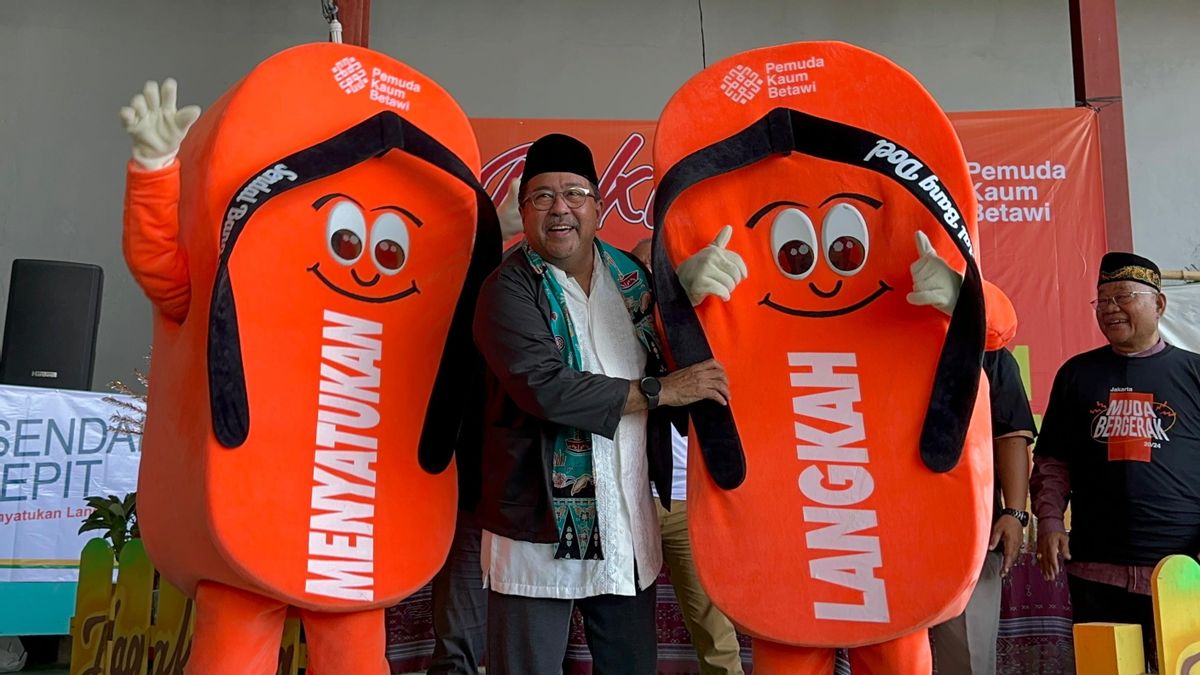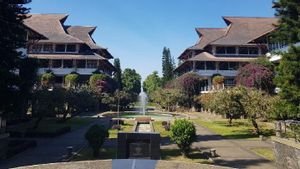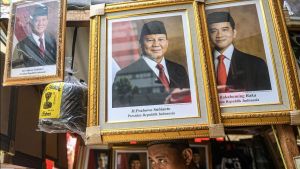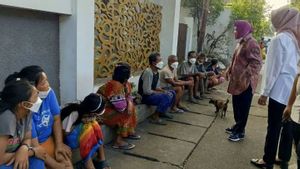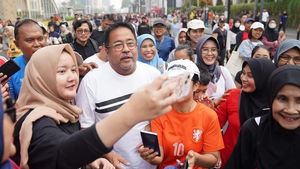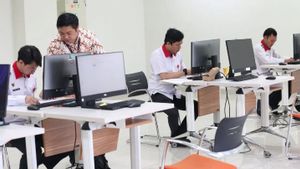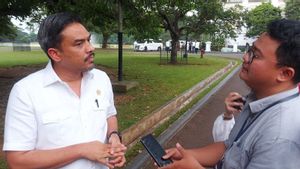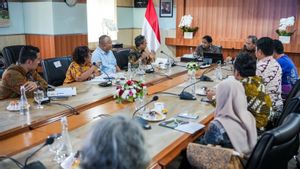JAKARTA Rano Karno made his campaign debut ahead of the election for governor and deputy governor of Jakarta last week. The appearance of Rano Karno in the Jakarta Pilkada was later linked to the Betawi ethnicity.
Rano Karno visited the Balai Warga Sanusi Konte, Jagakarta, South Jakarta, Wednesday (25/9/2024). On this occasion, the Betawi Youth Culture and Youth Organization (PK Betawi) officially expressed support for the number three pair, Pramono Anung-Rano Karno, promoted by the PDI-P.
Born in Jakarta on October 8, 1960, Rano Karno spent his studies in the capital. But actually, he is a Minang descendant who was obtained from his father, Soekarno M.Noer. The figure of Rano Karno is very close to the Betawi ethnicity after he successfully played the soap opera Si Doel Anak Sekolahan in the 1990s.
Masykur Isnan, Chairman of PK Betawi, said that the Betawi ethnic votes cannot be eliminated in every Jakarta Pilkada. The Betawi people, said Isnan, have an important role in the success of the regional elections and running the government in the future.
"For the context of Jakarta, the Betawi people have proven to have a big share and bargaining role for the winners in the Jakarta contest," Masykur Isnan told VOI.
The Betawi tribe is an early resident of Jakarta which is thought to have emerged in the 17th century. There are several different views regarding the origin of the Betawi tribe itself. Several figures say that the Betawi tribe emerged from the results of interactions between ethnicities and nations in the past brought by the Dutch to Batavia. Tjahjono (2003) stated that the Betawi tribe was born from a combination of various groups such as Sundanese, Malay, Javanese, Arabic, Balinese, Bugis, Makassar, Ambon and Chinese.
However, over time, the number of Betawi ethnic groups in Jakarta has decreased. According to a number of circles, this is due to the presence of people from various regions who come to Jakarta.
If in the past Betawi knick-knacks were still very easy to find, the euphoria had decreased slightly. This was confirmed through the 2010 population census which stated that the Betawi tribe in Jakarta was only 28.65 percent. Ethnic Betawi is still less in number than ethnic Javanese who fill Jakarta up to 46.64 percent. Other ethnic groups filling Jakarta are Sundanese 14.8 percent, Chinese nationals 6.71 percent, and the rest are other ethnic groups.
When it comes to the context of the fight in the Jakarta Pilkada, the candidates compete for the multi-ethnic voters. In the United States, which has a very long history of democracy, analysis of ethnic and religious influences on voters' preferences in choosing parties or presidential candidates is widely carried out.
Per Research Center in its many studies found that white protested voters in the US were the main supporters of the Republican Party, while the Democratic Party voters were more diverse from ethnic and religious sides, including ethnic blacks and voters.
In the Jakarta Pilkada, not only the various voters, but also the candidates with different ethnic backgrounds. This year, Ridwan Kamil, who is a native of the Sundanese tribe, will fight in Jakarta, while his deputy, Suswono, is originally from Central Java. Likewise with Pramono Anung who is from Java, as well as independent candidate Dharma Pongrekun who was born in Palu will be accompanied by Kun Wardana, a man born in Jakarta. This is a good phenomenon of Indonesian democracy.
However, the findings of the Alvara Research Center survey show that ethnic and religious issues are always at the lowest in determining which candidates the voters will choose in each election. Voters apparently consider the capabilities and capacity of the candidates they choose.
Hasanuddin Ali, Founder and CEO of the Alvara Research Center, does not deny that there are voters who vote because there are ethnic and religious similarities. But keep in mind that preference for choice because ethnic and religious factors are the most 'primitive' preferences in elections.
"So please candidates or supporters campaign to use ethnicity and religion as a basis, even though it is not the only way, for example Muslim candidates please invite Muslim voters to choose themselves," he said, quoted by the Alvara Research Center page.
"What you should not do is use ethnic and religious issues to attack other candidates, you should not be prohibited from saying 'Don't choose another candidate because he is an infidel, or 'don't vote for him because he is a Muslim', and so on," he continued.
Masykur Isnan emphasized that Betawi votes, including young people and the Betawi community at large, cannot be eliminated or ruled out by the contestants to withdraw or obtain a high electoral vote niche.
Betawi on the other hand is the local people of Jakarta who must also get the maximum portion in determining public policies that will be taken, made, implemented by the leaders of Jakarta later. The Betawi community also has an important role in the success of the Pilkada and the success of the future government.
"Because they are not only subjects, but also relevant objects to be a starting point for how the policy will be taken properly for the indigenous people of Jakarta," he said.
"For the context of the Pilkada, the Betawi people have proven to have a big share and bargaining for the winners in the Jakarta contestation," Mayskur Isnan explained.
During the declaration of Betawi PK support for the Pramono Anung-Rano Karno pair, the flip-flops movement was declared a symbol of unity and simplicity in politics. Rano Karno, who was present in the declaration, said the movement came by itself from the community.
SEE ALSO:
Masykur Isnan, a figure who declared the flip-flops movement, said several reasons for choosing footwear that was synonymous with simplicity as a symbol.
"First, we want to present a cheerful, politically happy politics, so public participation is expected to be maximized in the election contestation this time," he explained.
The second wanted to eliminate the negative stigma, especially in the previous regional election which was very thick with confrontation, resulting in social friction in society, Isnan added.
In addition, by using flip-flops as a campaign symbol, Masykur Isnan wants to show that politics does not always cost a lot of money, one of which is the use of a multifunctional, effective, and efficient campaign prop (APK).
As a result of the assessment, flip-flops also have extraordinary values in the wider community. Besides being multifunctional, it also has its own meanings, including displaying welfare, displaying loyalty, an egalitarian form," he said.
The English, Chinese, Japanese, Arabic, and French versions are automatically generated by the AI. So there may still be inaccuracies in translating, please always see Indonesian as our main language. (system supported by DigitalSiber.id)
